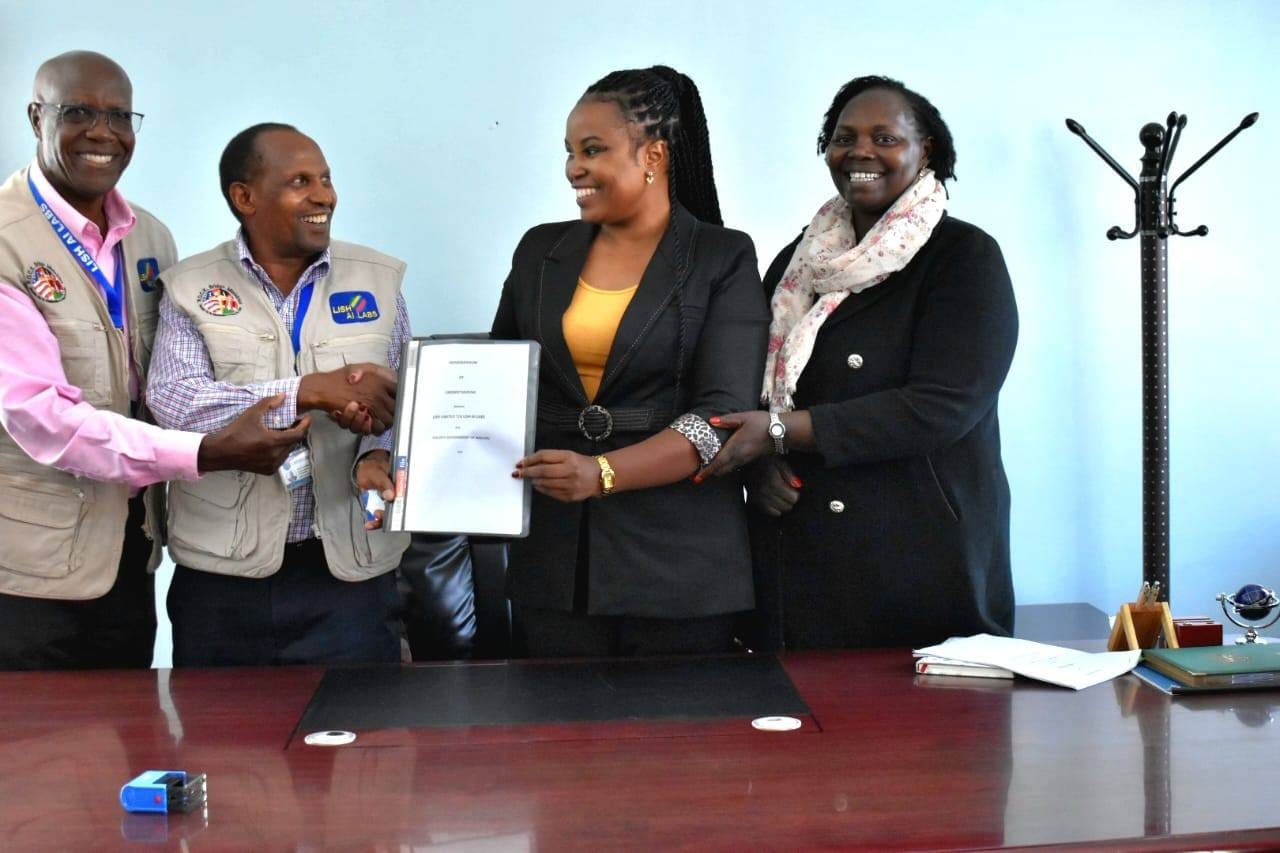Empowerment is the Core of digitization as Kenya aims to match it’s vision 2030 objectives.At least 850 people from special interest groups in Nakuru County are set to benefit from a new digital skills training program, following a partnership between the county government and Lish AI Labs, a data annotation and model validation solutions company.
The initiative aims to enhance employability, inclusivity, and economic participation among marginalized groups—particularly women, youth, and persons living with disabilities—by equipping them with essential digital and soft skills.
Speaking during the signing of a Memorandum of Understanding (MoU) with Lish AI Labs, Nakuru County Executive Committee Member (CECM) for Education, ICT, e-Government, and Public Communication, Ms. Zipporah Wambui, stated that the programme will offer accessible, market-oriented digital training across all 11 sub-counties.
“This initiative is a transformative step toward ensuring that persons from special interest groups receive market-relevant digital skills that will allow them to thrive in today’s digital economy,” said Ms. Wambui.
She noted that the comprehensive training will cover computer literacy, cybersecurity, Artificial Intelligence (AI), digital marketing, entrepreneurship, and access to online job opportunities. Additionally, participants will undergo soft skills development in communication, creative thinking, teamwork, and problem-solving to improve their adaptability in diverse work environments.
The programme will be conducted through digital hubs strategically located across Nakuru County, including the Shabab digital centre, Menengai East, Rongai, Subukia, Kuresoi South, Njoro, and Molo ICT hubs.
According to Ms. Wambui, the program’s key focus is inclusivity and empowerment, particularly targeting women in rural areas, who have often been excluded from technology-related opportunities.
“We are especially committed to empowering women in rural parts of the county with essential digital skills that can allow them to actively participate in Kenya’s rapidly growing digital economy,” she said. “By equipping youth, women, and people with disabilities with digital skills, we are increasing their employability and participation in the global digital marketplace.”
The CECM further emphasized that digital equity is fundamental for achieving social and economic justice in modern societies.
“Digital equity means everyone has equal access to information, education, employment, healthcare services, and platforms for civic engagement,” said Ms. Wambui. “Without it, marginalized groups are at risk of being left behind, deepening existing inequalities and hindering social progress.”
She explained that a digital divide limits access to vital services, reduces opportunities for upward mobility, and worsens inequality among underrepresented groups.
“Digital imbalance restricts people’s ability to obtain vital resources. This could limit social mobility and widen the gap between the digitally empowered and the digitally excluded,” she added.
Lish AI Labs Director, Mr. Dan Njiriri, echoed the importance of the programme, stating that it aligns with the company’s mission to empower underserved communities through technology and digital literacy.
“Our goal is to expand opportunities for underserved populations through the digital economy,” said Njiriri. “By focusing on youth and women in Nakuru, we aim to bridge the digital divide and support sustainable career paths in the tech industry.”
He emphasized that Kenya is well positioned to play a central role in global digital transformation, especially in the field of Artificial Intelligence.
“The digital economy is a transformative global force, and Kenya is well placed to shape an inclusive digital ecosystem,” he noted. “We believe that everyone should have a chance to make a meaningful impact in this space.”
Mr. Njiriri said that by equipping marginalized communities with tools and training, the initiative not only addresses immediate unemployment challenges but also contributes to long-term national growth.
“Through this initiative, we’re not just creating jobs—we’re preparing Kenyans to contribute to the future of AI and technology on a global scale,” he said.
The partnership supports the national government’s ongoing push to expand digital infrastructure and boost digital literacy across the country. It also reflects Kenya’s broader Vision 2030 goals of empowering citizens with the knowledge and resources needed to thrive in a knowledge-based economy.
The programme is expected to kick off later this month, with participants already being mobilized from various sub-counties.















Leave a comment